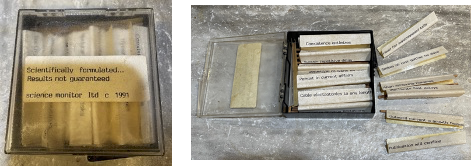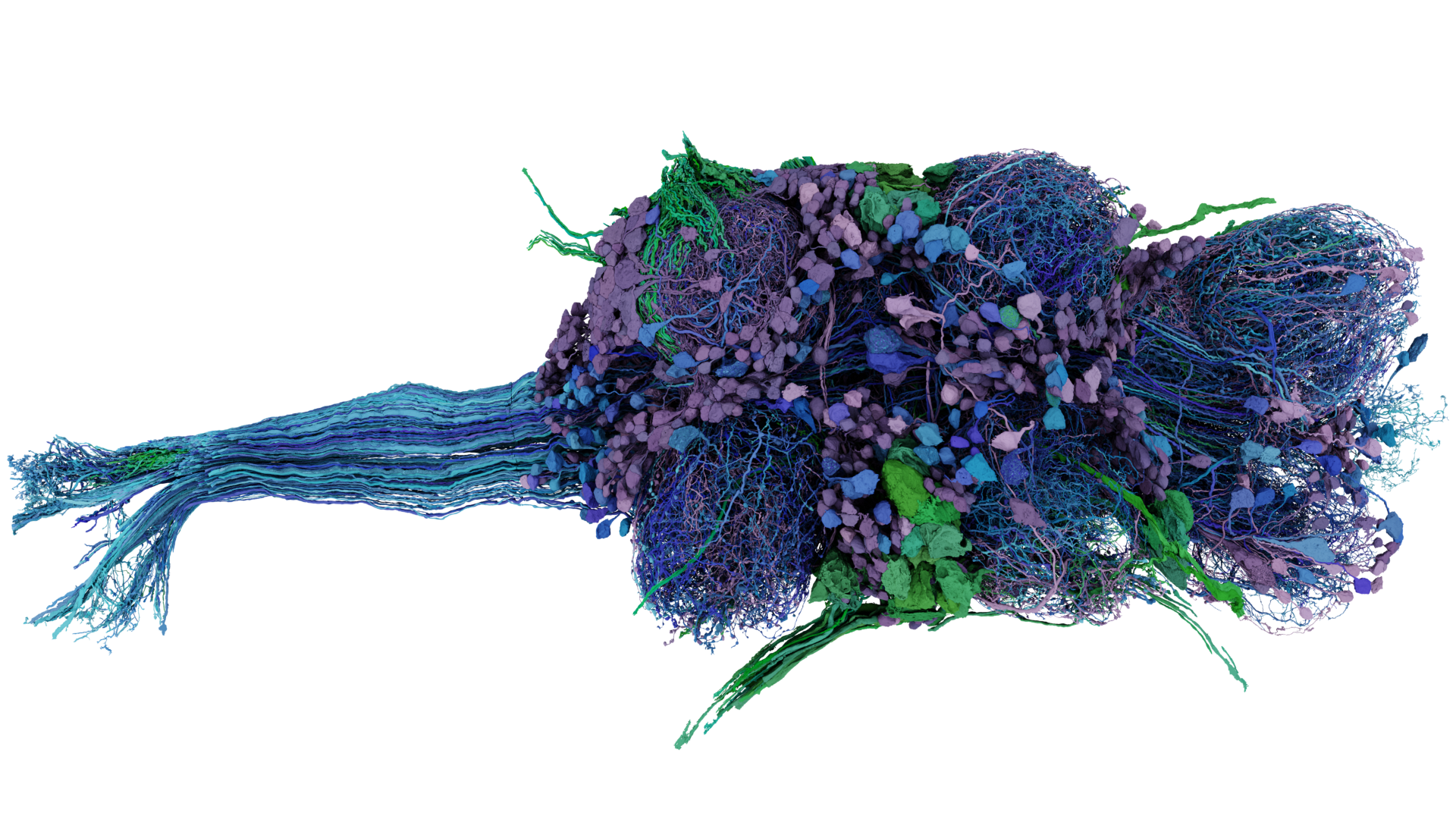Paul Newman, a long-time member of the department, passed away on Saturday, April 2. Paul was a prolific and talented artist and writer and superb research technician. He spent more than 30 years in the department, working in several laboratories along the way. We have collected some memories of Paul below.
Remembrances of Paul Newman, the Science Monitor (Bill Spain)
I remember when Paul Newman was first hired into PBio. Wayne Crill needed a tech to take over the lab’s chemical operations (mostly quantitative chemistry and some pharmacology). Wayne’s long time chief tech, Greg Heinz, was tasked with finding a qualified person. Greg devised a chemistry test and Paul was the only applicant to ace it, so he was hired. I was there when he showed up to take the test. He glided into the room, kind of sideways, and I had a sense that he was taking in the whole scene while he appeared to be looking nowhere.
At first he didn’t say much and mostly nodded when anyone talked to him about what we needed. But then the documentation of what we were doing and the changes he implemented started to show up: major league quality control which had the effect of reducing certain sources of variability in our experimental measurements from brain slices. And Paul quietly came up with something new, some improvement, almost weekly for the few years that I worked with him.
Paul was also an artist and a writer. Actually, the lab was his side-gig; he would not work more than half time to protect time for his creations (although Paul actually got more done in the lab than most full-timers). I first became aware of his other endeavors when an abstract painting showed up on the wall of the room where we mixed chemicals. I noticed the title, subtlety inscribed on the painting, “The Science Monitor”. Paul had painted it, and that about summed it all up.
One other thing, he really was taking it all in. When I left the lab, Paul gifted me one of his creations. It was a little box that contained scrolls with pieces of advice composed from the lingo of the lab (pictured below).

Marc Binder and Randy Powers
When Wayne retired, Paul moved over to our lab. His ‘transfer’ could not have come at a better time as we were making the transition from whole-animal electrophysiology to brain stem slices. Paul’s meticulous attention to detail enabled us to make the leap successfully. And, we were delighted to have the walls of our windowless, austere lab spaces adorned with his artwork.
One of my favorite ‘Paul Stories’ centers on his continuing battle with the DEA agent who assiduously monitored our use of the ketamine, called ‘Special K’ in those days, that we used as an anesthetic on adolescent rats. After inspecting Paul’s experimental log which was kept in a locked drawer along with the ketamine, the agent found a ‘shortage’ and was concerned that some of this ‘high-value street drug’ had been purloined. In response to the accusation, Paul conducted, documented and illustrated a series of ‘experiments’ using saline to unequivocally demonstrate that the magnitude of the alleged ketamine ‘shortage’ was precisely what one would expect based on the number of injections in the log book and the small residual left in the syringe with each usage. The inspector received a copy of Paul’s lab notebook and we were never questioned again.
Paul did so many things great and small to keep our lab running smoothly and efficiently. This was often a challenge given a rotating cast of students and postdocs, all with their own way of doing things. Paul was fiercely loyal to Marc and me, so he would occasionally have trouble dealing with significant dissent. He always maintained his composure, and was such a kind person that instead of blowing up, he would come to Marc and relate that something someone had said or done “stuck in his craw”. Inevitably, after a little “craw-clearing” he would figure out a solution. He was a true gem!
Fred Rieke
Paul worked with us from 2005 until he retired in 2013. When he joined us, the lab was starting to grow and we needed to coordinate on shared needs for experiments and to develop associated quality controls. Paul did that and more. Paul was meticulous about everything he did in the lab – checking any procedures or recipes that already existed, and carefully documenting anything new. We still use his recipes and approaches to documentation. No one ever questioned whether anything Paul that did was done appropriately. He somehow did this while also being extremely efficient.
As was true for his time in the Crill and Binder labs, Paul worked only as much for us as needed to support his painting and writing habits. We, along with many other previous lab members have several of Paul’s paintings in our living room. After retiring in 2013, Paul started spending extended periods of time in Paris. He found inspiration from Paris’ architecture and museums, and that led to exploration in his own work. An excerpt from an email from Paul to Felice Dunn, a former student in the lab who shared a love of art with Paul, captures this nicely.
“Visited Musee de Quai Branly– ‘primitive’ art of Africa, pacific islanders, SE Asia. Fantastique masks predominate the exhibit– We might assimilate the specialization these masks portray– human face is but a (small) part of what some of them project environmentally/ culturally.”
Paul’s other focus in retirement was tending his garden and taking care of the resident birds. This included near-constant battles with the neighborhood squirrels. Ali Weber and Phil Mardoum described the squirrel interactions:
“A good chunk of our time with Paul was spent in the garden chatting while watching the birds and admiring his carefully tended plants. We knew Paul had it out for the neighborhood squirrels who chased away the birds, and we really had a laugh one day when we arrived to see that he had purchased a super soaker with the intention of using it on the squirrels.”
Below is Paul armed with his super soaker, next to a poem that references the squirrels.


We will miss him, but are grateful for the time that each of us had with him.

